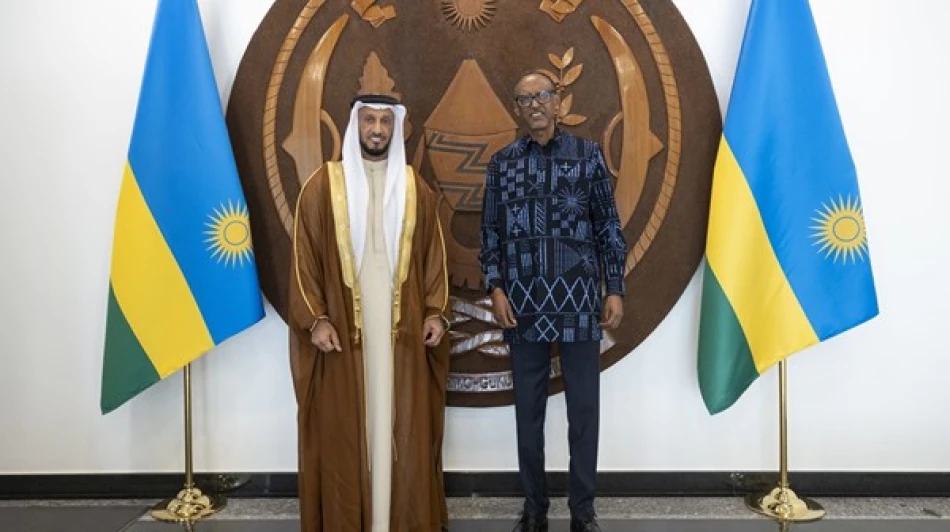
Rwandan President Meets with Abdullah Al Hamad for High-Level Talks
UAE-Rwanda Partnership Deepens as Media Chiefs Signal Broader Economic Cooperation
High-level diplomatic meetings in Kigali this week between UAE and Rwandan officials suggest both nations are positioning themselves for expanded bilateral cooperation across multiple sectors. The engagement, led by UAE National Media Council Chairman Abdullah bin Mohammed bin Butti Al Hamed and Rwandan President Paul Kagame, reflects a strategic push by both countries to diversify their international partnerships beyond traditional allies.
Strategic Timing for East African Expansion
The UAE's renewed focus on Rwanda comes at a pivotal moment for both economies. Rwanda has emerged as one of Africa's fastest-growing economies, with GDP growth averaging over 7% annually in recent years, while the UAE continues its aggressive diversification away from oil dependency. This alignment creates natural synergies for cooperation in technology, finance, and sustainable development.
President Kagame's reception of formal greetings from UAE President Sheikh Mohammed bin Zayed Al Nahyan underscores the importance both leaderships place on this relationship. Such high-level diplomatic courtesy typically precedes substantive economic agreements or investment announcements.
Beyond Diplomacy: Development and Investment Potential
Rwanda's Appeal to Gulf Investors
Rwanda's transformation from a post-conflict nation to a regional business hub makes it an attractive partner for UAE investors. The country's streamlined business registration process, anti-corruption measures, and strategic location as a gateway to East African markets align with the UAE's preference for stable, growth-oriented investment destinations.
Al Hamed's separate meeting with Jean Guy K. Africa, CEO of the Rwanda Development Board, signals concrete discussions about investment opportunities. The Rwanda Development Board has successfully attracted over $2.5 billion in foreign direct investment commitments in recent years, with Gulf states showing increasing interest in the country's infrastructure and technology sectors.
UAE's African Strategy Takes Shape
This engagement fits within the UAE's broader African expansion strategy, which has seen significant investments across the continent in ports, renewable energy, and financial services. Unlike China's belt-and-road approach or Western development aid models, the UAE typically focuses on commercially viable projects that generate returns while supporting local development.
Sector-Specific Opportunities
The meetings likely explored cooperation in several key areas where both countries have demonstrated expertise. Rwanda's leadership in digital governance and financial inclusion could benefit from UAE fintech innovation, while the UAE's renewable energy sector could support Rwanda's ambitious goal of achieving universal electricity access.
Media and technology cooperation appears particularly relevant given Al Hamed's role in UAE media governance. Rwanda's efforts to position itself as a regional technology hub, including hosting major international conferences and developing smart city initiatives, could benefit from UAE expertise in media infrastructure and digital transformation.
Market Implications
For investors tracking African opportunities, the UAE-Rwanda partnership represents a validation of Rwanda's investment climate by one of the world's most sophisticated sovereign wealth fund ecosystems. The UAE's due diligence standards are typically rigorous, making their engagement a positive signal for other international investors considering Rwandan opportunities.
This cooperation also reflects both countries' pragmatic approach to international relations, prioritizing economic mutual benefit over traditional geopolitical alignments. As global supply chains continue reshaping post-pandemic, such South-South partnerships may become increasingly important for emerging economies seeking development financing and technical expertise.
Most Viewed News

 Layla Al Mansoori
Layla Al Mansoori






